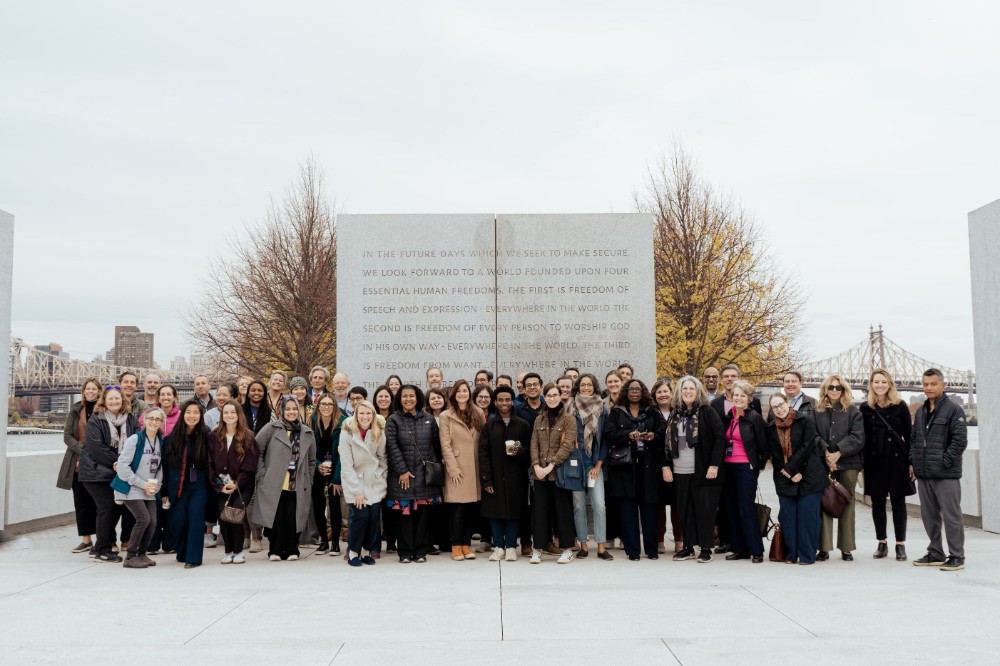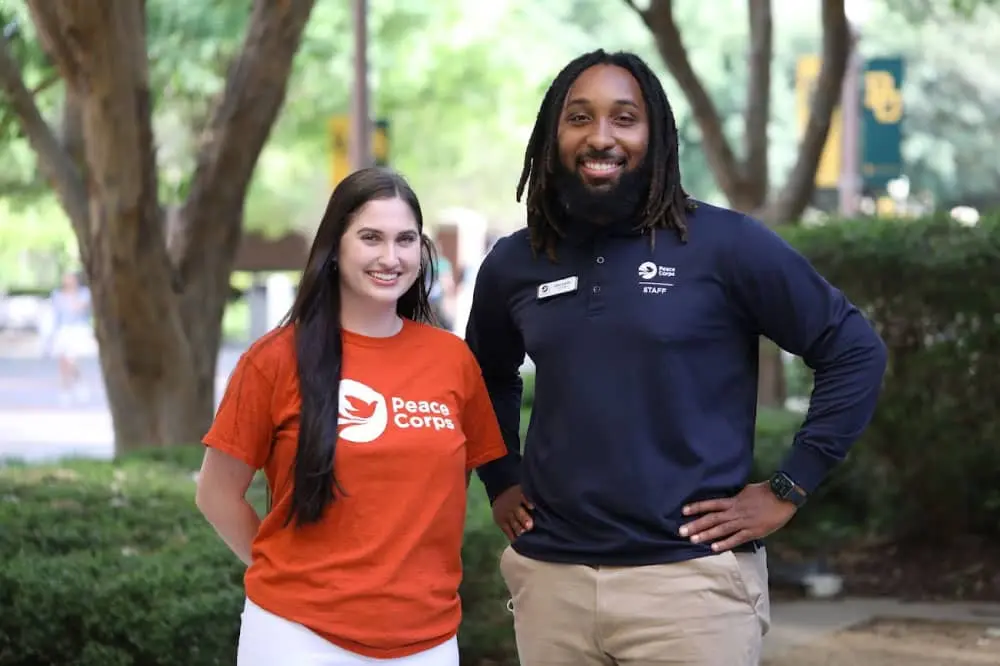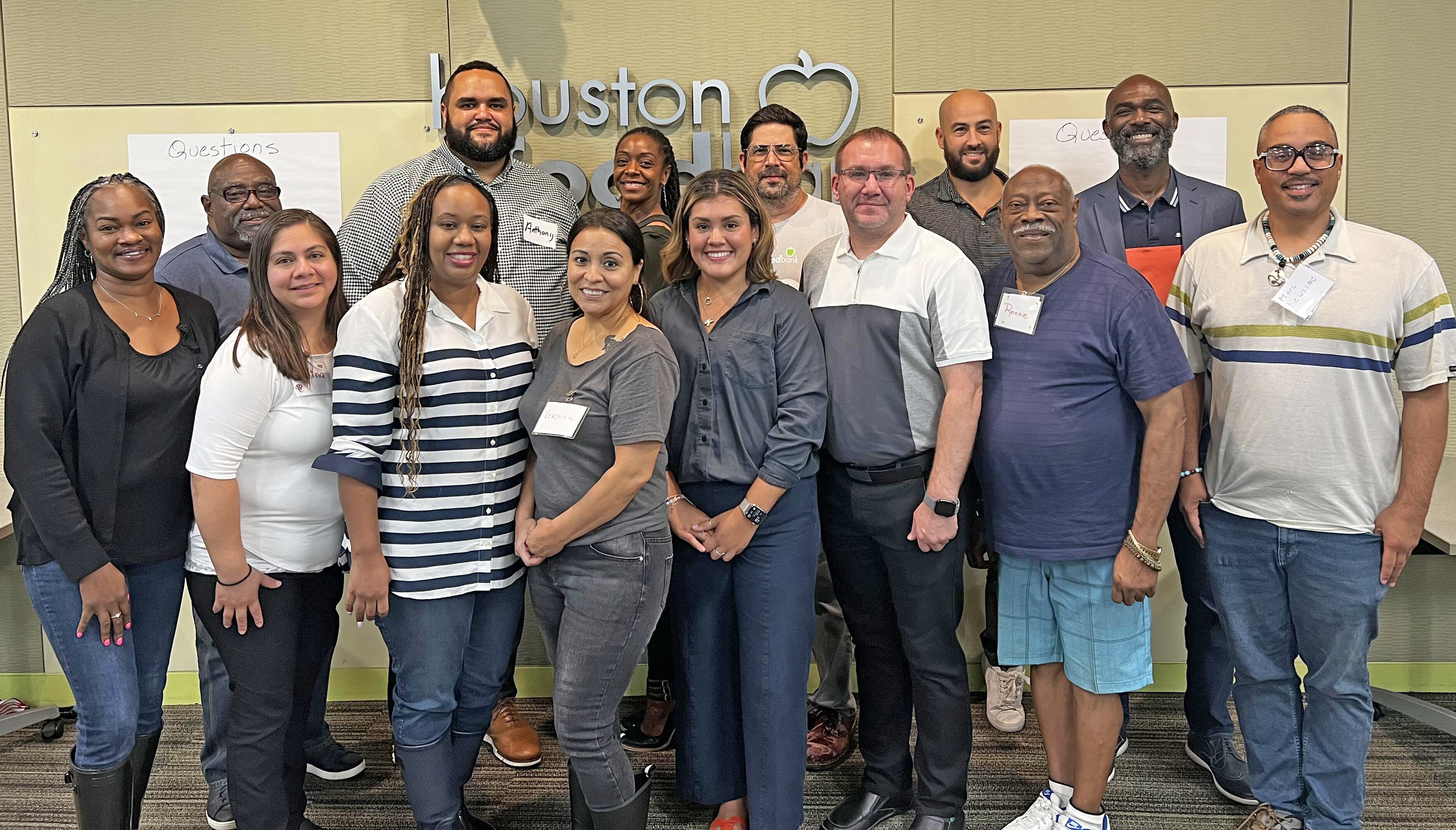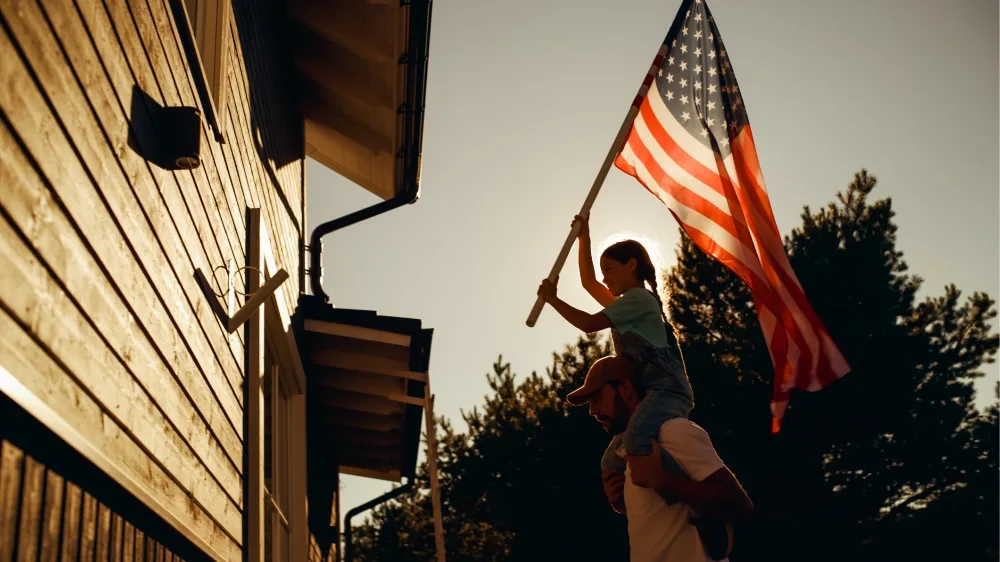Jenn Hoos Rothberg -
Mar 11, 2025
Being a Student of History
Being a Student of History
Listen to an audio version of this reflection.
A lesson I have learned from Eric Liu, a friend and the CEO of Citizen University, is that in times of transition and uncertainty, we ought to be students of history.
By turning to and examining historical artifacts — be it an essay, speech, or even a song — we can gain new perspectives, see ourselves as a small facet in the long timeline of human existence, and feel less alone amid the challenges we face.
Eric’s advice brought me back to last November when our team hosted a gathering of nonprofit and foundation partners working in higher education to reflect on the ongoing upheavals and divisions on college campuses.
On a crisp, sunny morning during the convening, our group visited the Four Freedoms Park on Roosevelt Island, built in 2010 as a memorial to former President Franklin D. Roosevelt. We stood in front of a stone block etched with passages from FDR’s 1941 State of the Union address, more popularly known as the Four Freedoms speech. Each of us took in the gravity of our societal divisions and our responsibilities to upend the crisis of disconnection, distrust, and dehumanization on college campuses and beyond.

Inspired by the Four Freedoms speech, I offered four questions for our partners to muse on during the gathering. I believe these are still pertinent questions for us to grapple with today.
- How might we find the courage to speak up while making it easier for others to share divergent viewpoints?
- How might we bring our faith, spirituality, and cultural knowledge to enrich each other's understanding of our past, present, and future?
- How might we inspire people to care about the well-being of others, especially those who do not share their backgrounds, values, and beliefs?
- How might we identify the underlying causes of fear that fuel hate, distrust, and divisions in our country and help develop the next generation of civic bridge-builders with the skills and motivation to live and work harmoniously across our lines of difference?
Together, as leaders of foundations and nonprofits, we wanted to understand how we might better support universities in building a culture of respect and belonging and effectively navigating conflicts on their campuses, both here and now and in the future. And, we were eager to dream up a collaborative effort that many of us could get behind so that students — whether at a community college or a four-year residential program — can develop the practical skills to effectively live, work, and transform a deeply divided nation.
If you have read our newsletter or are familiar with our work, efforts to help people develop and practice these skills and mindsets won’t come as a surprise. They range from the ability to understand and respect divergent viewpoints to the ability to build trust and connection with people who hold different values and beliefs to the ability to work collaboratively across lines of difference.
With these aspirations in mind, we leaned on FDR’s address for insights. His vision for our future is built upon what he called “four essential human freedoms”: freedom of speech and expression, freedom of worship, freedom from want, and freedom from fear. They echo the civil rights and liberties guaranteed under the Bill of Rights.
I offered four questions for our partners to muse on during the gathering, each connected to one of the freedoms. I believe these are still pertinent questions for all of us to grapple with today.
- How might we find the courage to voice our opinions while making it easier for others to share divergent viewpoints?
- How might we bring our faith, spirituality, and cultural knowledge to enrich each other's understanding of our past, present, and future?
- How might we inspire people to care about the well-being of others, especially those who do not share their backgrounds, values, and beliefs?
- How might we identify the underlying causes of fear that fuel hate, distrust, and divisions in our country and help develop the next generation of civic bridge-builders with the skills and motivation to live and work harmoniously across our lines of difference?
While our gathering was focused on higher education, the reality is that disconnection and polarization permeate almost every aspect of our lives. High conflicts ripple through our neighborhoods, offices, and places of worship. They permeate the news and our social media feeds. And, they are present at every level of government. The unceasing presence of these high conflicts weakens our ties to our communities and decreases our trust in institutions and one another.
Adding to this already fraught environment, Americans also feel the social pressure to have the “right” opinions, leading to more than half of the country believing that they cannot publicly share their honest beliefs about sensitive issues and over 61% admitting to self-silencing.
As a result, since the 1990s, America has fallen behind other countries in measures of well-being like health and happiness. Researchers at the State of the Nation Project, which tracks these measures, point to social isolation and political polarization as potential reasons for such declines.
By spending more time on our phones and choosing to spend less time with others, we are closing ourselves off to opportunities that build relationships that would enrich our lives. This lack of social contact and engagement warps our perception of people who hold different opinions, making it harder to find common ground. In an environment like this, it becomes easier to retreat to our corners and lose the appreciation for our shared humanity.
It may be helpful for us to once again draw on the Four Freedoms speech to navigate these interconnected challenges. There are many ways to interpret FDR’s address, but I want to offer one about the universality of these freedoms and how they touch upon our most basic human needs.
Author Chimamanda Ngozi Adichie opened her latest fictional story with a line that reads, “I have always longed to be known, truly known, by another human being.” This, to me, is what the four freedoms are ultimately about: every single one of us yearns to be known and understood, to lead a life anchored by our own desires and traditions, to feel cared for and loved, and to belong.
If we see these yearnings in ourselves, then it’s only reasonable that we respect these same yearnings in others, even when the values and beliefs that guide their ways of life differ from or even clash with our own.
Furthermore, as we stood together as a group at the Four Freedoms Park in November, Rabbi Ben Berger, Senior Vice President of Hillel International, reminded us of an important detail. The speech was delivered in the immediate aftermath of the Holocaust, and philosopher Simon Rawidowicz argued that FDR’s Four Freedoms were incomplete and suggested a fifth freedom that all human beings deserve: the freedom to be different.
Rawidowicz insisted that the freedom to be different must be fought for and protected. “Do not try to hide the Different inside you,” wrote Rawidowicz. “Carry it with open pride to yourself and to the world!”
Rawidowicz's addition of the fifth freedom shows how diverse perspectives can make even the most tumultuous moments in history more multifaceted and beautiful. Constructive observation and criticism can complement and build upon the original idea in profound ways.
Time and again, when challenges knock on our door, humankind has demonstrated that we have what it takes to work together and become our best selves. The ingenuity and wisdom that come from our differences are what make societal progress possible.
Jenn Hoos Rothberg leads Einhorn Collaborative. Learn more about our work and more about Jenn. Sign up to receive our monthly newsletter and be the first to read Jenn’s blog posts.





